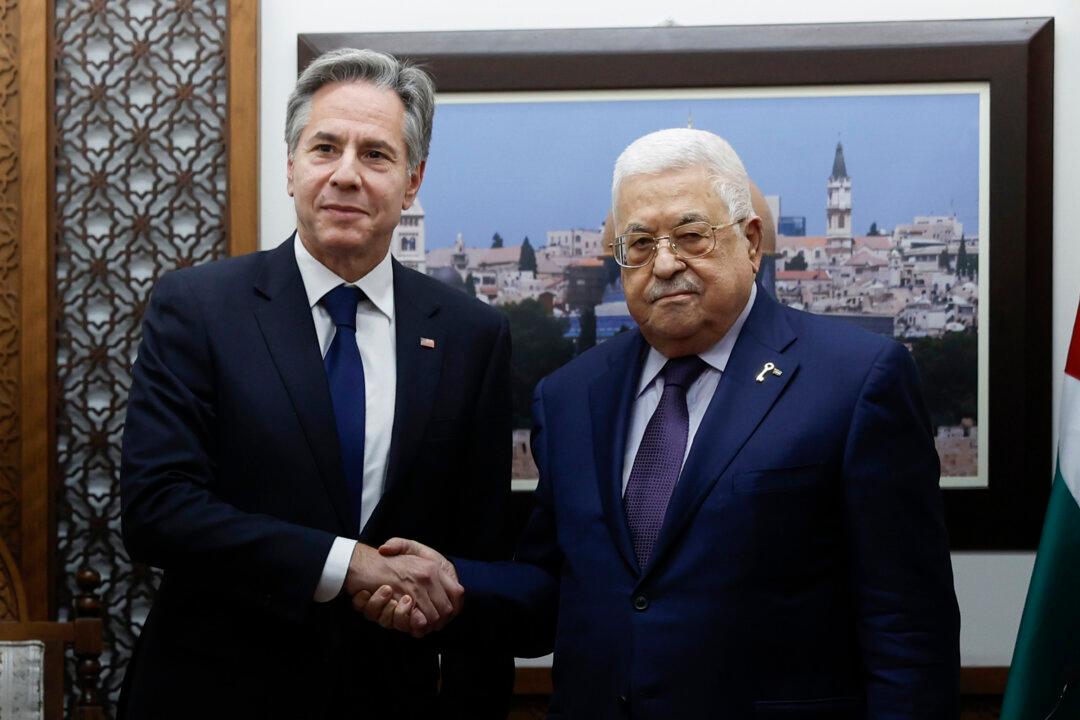RAMALLAH—U.S. Secretary of State Antony Blinken made an unannounced visit to the West Bank on Nov. 5, where he met with the Palestinian Authority president as he continues a tour of the region amid spiraling tensions over the Israel–Hamas war.
Mr. Blinken and Mahmoud Abbas met in the West Bank city of Ramallah, on his second visit to the region since Hamas terrorists launched a surprise attack on southern Israel on Oct. 7, killing 1,400 people and taking more than 240 others hostage.





